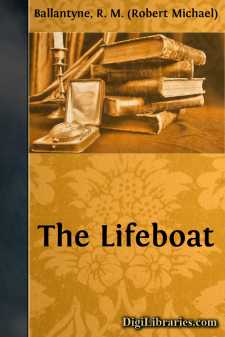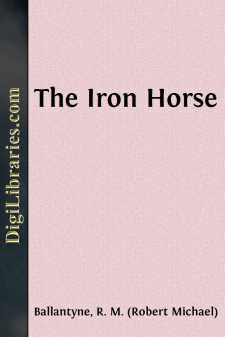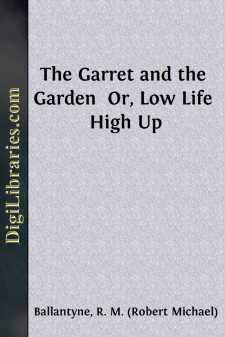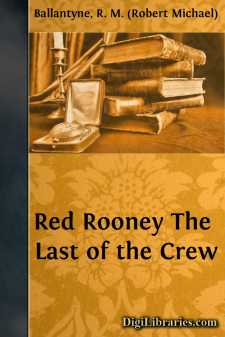Categories
- Antiques & Collectibles 13
- Architecture 36
- Art 48
- Bibles 22
- Biography & Autobiography 813
- Body, Mind & Spirit 142
- Business & Economics 28
- Children's Books 17
- Children's Fiction 14
- Computers 4
- Cooking 94
- Crafts & Hobbies 4
- Drama 346
- Education 46
- Family & Relationships 57
- Fiction 11829
- Games 19
- Gardening 17
- Health & Fitness 34
- History 1377
- House & Home 1
- Humor 147
- Juvenile Fiction 1873
- Juvenile Nonfiction 202
- Language Arts & Disciplines 88
- Law 16
- Literary Collections 686
- Literary Criticism 179
- Mathematics 13
- Medical 41
- Music 40
- Nature 179
- Non-Classifiable 1768
- Performing Arts 7
- Periodicals 1453
- Philosophy 64
- Photography 2
- Poetry 896
- Political Science 203
- Psychology 42
- Reference 154
- Religion 513
- Science 126
- Self-Help 84
- Social Science 81
- Sports & Recreation 34
- Study Aids 3
- Technology & Engineering 59
- Transportation 23
- Travel 463
- True Crime 29
The Lifeboat
Categories:
Description:
Excerpt
The Beginning—in which Several Important Personages are Introduced.
There existed, not many years ago, a certain street near the banks of old Father Thames which may be described as being one of the most modest and retiring little streets in London.
The neighbourhood around that street was emphatically dirty and noisy. There were powerful smells of tallow and tar in the atmosphere, suggestive of shipping and commerce. Narrow lanes opened off the main street affording access to wharves and warehouses, and presenting at their termini segmentary views of ships’ hulls, bowsprits, and booms, with a background of muddy water and smoke. There were courts with unglazed windows resembling doors, and massive cranes clinging to the walls. There were yards full of cases and barrels, and great anchors and chains, which invaded the mud of the river as far as was consistent with safety; and adventurous little warehouses, which stood on piles, up to the knees, as it were, in water, totally regardless of appearances, and utterly indifferent as to catching cold. As regards the population of this locality, rats were, perhaps, in excess of human beings; and it might have been observed that the former were particularly frolicsome and fearless.
Farther back, on the landward side of our unobtrusive street, commercial and nautical elements were more mingled with things appertaining to domestic life. Elephantine horses, addicted to good living, drew through the narrow streets wagons and vans so ponderous and gigantic that they seemed to crush the very stones over which they rolled, and ran terrible risk of sweeping little children out of the upper windows of the houses. In unfavourable contrast with these, donkeys, of the most meagre and starved aspect, staggered along with cartloads of fusty vegetables and dirty-looking fish, while the vendors thereof howled the nature and value of their wares with deliberate ferocity. Low pawnbrokers (chiefly in the “slop” line) obtruded their seedy wares from doors and windows halfway across the pavement, as if to tempt the naked; and equally low pastry-cooks spread forth their stale viands in unglazed windows, as if to seduce the hungry.
Here the population was mixed and varied. Busy men of business and of wealth, porters and wagoners, clerks and warehousemen, rubbed shoulders with poor squalid creatures, men and women, whose business or calling no one knew and few cared to know except the policeman on the beat, who, with stern suspicious glances, looked upon them as objects of special regard, and as enemies; except, also, the earnest-faced man in seedy black garments, with a large Bible (evidently) in his pocket, who likewise looked on them as objects of special regard, and as friends. The rats were much more circumspect in this locality. They were what the Yankees would call uncommonly “cute,” and much too deeply intent on business to indulge in play.
In the lanes, courts, and alleys that ran still farther back into the great hive, there was an amount of squalor, destitution, violence, sin, and misery, the depth of which was known only to the people who dwelt there, and to those earnest-faced men with Bibles who made it their work to cultivate green spots in the midst of such unpromising wastes, and to foster the growth of those tender and beautiful flowers which sometimes spring and flourish where, to judge from appearances, one might be tempted to imagine nothing good could thrive....












